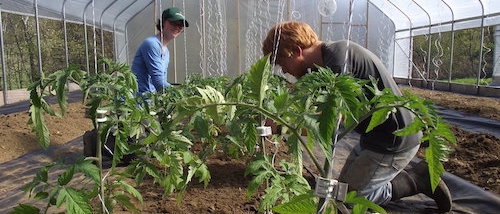Vaca means cow in Spanish. Ville means town in French. Vacaville is a town along Interstate 80 about an hour north of San Francisco at the edge of California’s Sacramento Valley. Vacaville’s residents are your best resource for accurate information about the charms and treasures of this community. Sophisticates driving past towards the gambling casinos of Reno from glittery San Francisco are liable to see Vacaville as nothing more than a metastasized truck stop. “Cowtown” they sniff.
But they’re wrong. There is no opera, museum of modern art, or ballet tucked in among the burg’s fast food joints and big box outlet stores but Vacaville doesn’t mean cowtown. Vacaville was founded by Juan Manuel Vaca who came to the area in 1841.
After the fashion of the day his little frontier town was given some classy polish with a French accented name, just like Castroville further south (the artichoke capital of the world) and my own two-horse town Watsonville. Collectively Juan Vaca’s family would have been known to their neighbors as Los Vaca. Los is the plural masculine definite article. In any group, if even one person is male it is the practice in Spanish to address the entire lot as though they were males. Spanish is not “fair” or “feminist” in this respect but it is consistent.
Las Vacas would be the cows that belonged to Los Vaca back when the family held title to the sprawling Rancho Los Putos. Yes, you read that right. Puto means male sex worker in Spanish just as puta means female sex worker. But Rancho Los Putos was not named to celebrate herds of male whores walking in the streets of the ville of Vaca. No, Puto was one spelling of the name of the local clan of Patwin Indians who had lived nearby in a settlement called Puta-to. Had the rancho name commemorated one family rather than a number of them it would have been correct to name the place Rancho de los Puto.
After traveling through cow-town and sniffing some folks can’t help snickering at the signs that soon sprout up at the freeway's edge announcing the bridge over Putah creek (another spelling of the same clan name.) But you’re not laughing, because you know better. When you drive past Vacaville and Putah creek you smile because you are improving yourself by learning Spanish.
Deme el martillo = Give me the hammer.
Démelo = Give it to me (if you’re asking for something that is masculine)
Deme la pala = Give me the shovel
Démela = Give it to me (if you’re asking for something that is feminine)
Add an ‘s’ if you’re asking for more than one:
Deme los tornillos = Give me the screws.
Démelos = Give them to me. (if you’re asking for the screws)
Traeme las cajas. = Bring me the boxes.
Traémelas = Bring them to me. (plural feminine)
